From the acclaimed author of Teatime for the Firefly comes the story of a man with dreams of changing the world, who finds himself changed by love
1870s India. In a tiny village where society is ruled by a caste system and women are defined solely by marriage, young Biren Roy dreams of forging a new destiny. When his mother suffers the fate of widowhood—shunned by her loved ones and forced to live in solitary penance—Biren devotes his life to effecting change.
Biren’s passionate spirit blossoms as wildly as the blazing flame trees of his homeland. With a law degree, he goes to work for the government to pioneer academic equality for girls. But in a place governed by age-old conventions, progress comes at a price, and soon Biren becomes a stranger among his own countrymen.
Just when his vision for the future begins to look hopeless, he meets Maya, the independent-minded daughter of a local educator, and his soul is reignited. It is in her love that Biren finally finds his home, and in her heart that he finds the hope for a new world.
Praise for Shona Patel’s debut novel, Teatime for the Firefly
“Patel’s remarkable debut effortlessly transports readers back to India on the brink of independence…fans of romantic women’s fiction will be enchanted by [the] Teatime for the Firefly’s enthralling characters, exotic setting, and evocative writing style.”
—Booklist, starred review
“The historical detail makes this debut novel a rich reading experience. Those who enjoy historical fiction and portraits of foreign cultures will surely love this book.”
—Library Journal
“Debut author Patel offers a stunning, panoramic view of a virtually unknown time and place—the colonial British tea plantations of Assam—while bringing them to life through a unique character’s perspective.… A lyrical novel that touches on themes both huge and intimate and, like Layla, is so quietly bold that we might miss its strength if we fail to pay attention.”
—Kirkus Book Reviews
“A captivating tale of discovery, adventure, challenge, romance and triumph over difficult conditions that rings with authenticity.”
—Bookreporter
“With lyrical prose and exquisite detail, Shona Patel’s novel brings to life the rich and rugged landscape of India’s tea plantation, harboring a sweet love story at its core.”
—Shilpi Somaya Gowda, New York Times bestselling author of Secret Daughter
“Patel takes readers on a vivid tour of 1940s India, exploring the attitudes of the day and the traditions of the tea-growing region of Assam. The story ebbs and flows gracefully, sure to keep readers actively engaged and fervently enticed. Simply stated, Teatime for the Firefly is a true treasure.”
—RT Book Reviews
“A lush, rich love story combined with history and culture…this gem of a novel is a perfect read for anyone looking for a deep, engrossing tale.”
—All About Romance
Also from Shona Patel and MIRA Books
Teatime for the Firefly

Flame Tree Road
Shona Patel

www.mirabooks.co.uk
For Mothy, my sister,
the key to my authentic self
Contents
Cover
Back Cover Text
Praise
Also from Shona Patel and MIRA Books
Title Page
Dedication
Epigraph
Prologue
CHAPTER 1
CHAPTER 2
CHAPTER 3
CHAPTER 4
CHAPTER 5
CHAPTER 6
CHAPTER 7
CHAPTER 8
CHAPTER 9
CHAPTER 10
CHAPTER 11
CHAPTER 12
CHAPTER 13
CHAPTER 14
CHAPTER 15
CHAPTER 16
CHAPTER 17
CHAPTER 18
CHAPTER 19
CHAPTER 20
CHAPTER 21
CHAPTER 22
CHAPTER 23
CHAPTER 24
CHAPTER 25
CHAPTER 26
CHAPTER 27
CHAPTER 28
CHAPTER 29
CHAPTER 30
CHAPTER 31
CHAPTER 32
CHAPTER 33
CHAPTER 34
CHAPTER 35
CHAPTER 36
CHAPTER 37
CHAPTER 38
CHAPTER 39
CHAPTER 40
CHAPTER 41
CHAPTER 42
CHAPTER 43
CHAPTER 44
CHAPTER 45
CHAPTER 46
CHAPTER 47
CHAPTER 48
CHAPTER 49
CHAPTER 50
CHAPTER 51
CHAPTER 52
CHAPTER 53
CHAPTER 54
CHAPTER 55
CHAPTER 56
CHAPTER 57
CHAPTER 58
CHAPTER 59
CHAPTER 60
CHAPTER 61
CHAPTER 62
CHAPTER 63
CHAPTER 64
A Note to Readers
Acknowledgments
Reader’s Guide
A Conversation with the Author
Questions for Discussion
Extract from Teatime for the Firefly by Shona Patel
Copyright

The traveler has to knock at every alien door
to come to his own,
and one has to wander
through all the outer worlds to reach
the innermost shrine at the end.
Rabindranath Tagore
From Gitanjali

Small villages cluster the waterways of East Bengal in India. Seen from above they must appear like berries along a stem, dense or sparse depending on the river traffic that flows through. Crescent-shaped fishing boats skim the waters with threadbare sails that catch the wind with the hollow flap of a heron’s wing. Larger boats carry people or cargo: bamboo baskets, coconut and long sticks of sugarcane that curve on their weight down to the water’s edge. There are landing ghats along the riverbank with bamboo jetties that stick out over the floating water hyacinth. Here the boats stop and people get on or off and take the meandering paths that lead through the rice fields and bamboo groves into the villages.
Once a week, the big world passes by in the form of a paddleboat steamer bound for important destinations: Narayanganj, Dhaka, Calcutta. It shows up on the horizon, first a tiny speck the size of a peppercorn, and grows to its full girth as it draws closer. The village boats scatter at the sound of its imperious hoot, and small boys in ragged shorts jump and wave at the lascar who moves easily along the deck with the swashbuckling sway of a true seafarer. His long black hair and white tunic whip in the river breeze as the steamer gushes by with a rhythmic swish of its side paddles, leaving the tiny boats bobbing like toothpicks in its wake.
Once a bridal party loaded with pots and garlands caught the powerful wake of the steamer as it passed. It bounced the boat and almost tossed the young bride into the river. The shy young husband instinctively grabbed his wife, drawing her into an awkward but intimate embrace. The veil slipped from the bride’s head and he saw for the first time her bright young face and dark, mischievous eyes. He drew back, embarrassed. His male companions broke into wolf whistles and rousing cheers and his bride gave him a slant-eyed smile that made his emotions settle in unexpected places. During the remainder of the journey, their fingertips occasionally met and lingered under the long veil of her red and gold sari.

CHAPTER
Читать дальше
















